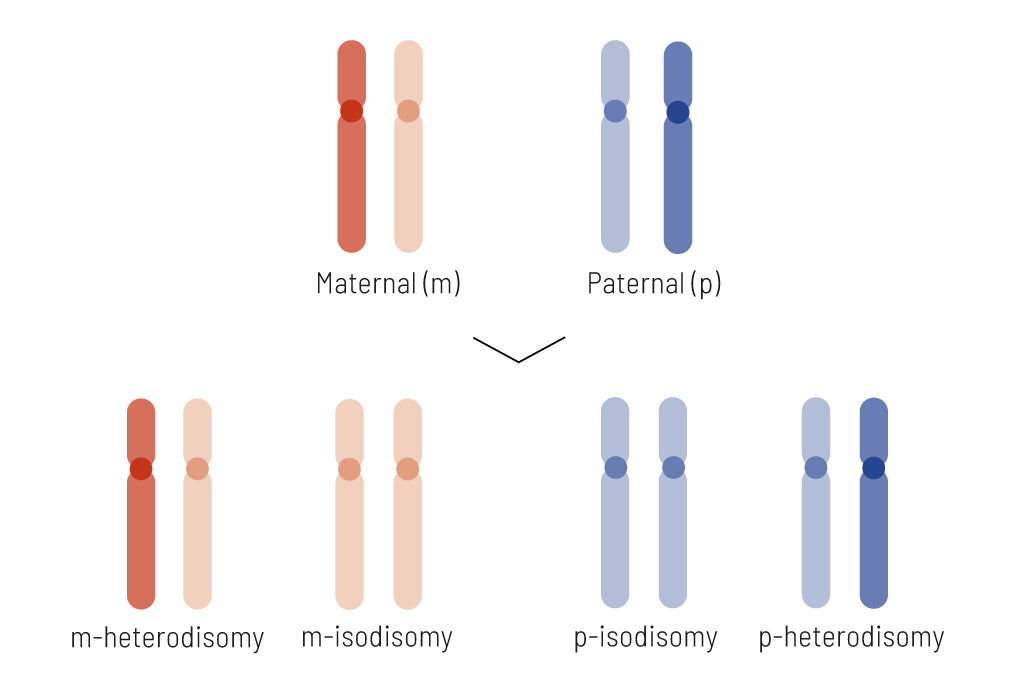With our trio exome diagnostics, we detect heterodisomies as well as isodisomies. This increases the diagnostic solution rate and improves the interpretation of exome sequencing data.
Extra thorough analysis
CeGaT’s data analysis goes beyond the limits of normal exome diagnostics and increases solution rates. In addition to single nucleotide variants (SNVs) and copy number variants (CNVs), we also check our trio exome data set for the presence of uniparental disomies (UPD). UPDs can be present as isodisomies or heterodisomies.
We detect and report clinically relevant uniparental disomies in all four possible constellations:
- maternal and paternal heterodisomies, and
- maternal and paternal isodisomies.
This also includes segmental uniparental disomies that do not affect the whole chromosome.

Figure: Simplified diagram of uniparental disomy (UPD) development. UPD occurs when both chromosome pairs (or large parts of them) are inherited from only one parent.
Background
In uniparental disomy, both alleles of a chromosome or parts thereof are inherited from only one parent. If both chromosomes are from the mother, this is called maternal UPD; if both are from the father, this is called paternal UPD. A distinction can be made between two types of UPD: In uniparental heterodisomy, the cell has inherited two different chromosomes from the same parent, whereas in uniparental isodisomy, the same chromosome has been inherited twice.
A uniparental disomy is pathologically significant if there is a mutation in a recessive gene on the chromosome that is inherited as an isodisomy from only one parent. Due to the duplication of this chromosome or gene, the mutation becomes homozygous in the child and leads to a disorder. There are also some autosomal hereditary diseases in which the parental origin of the mutated allele is relevant. The alleles are activated or inactivated differently in the parental germline. This modification of gene activity is known as “genomic imprinting” and plays a role, for example, in Prader-Willi or Angelman syndrome.
Further information on our exome diagnostics can be found here.
Benefit from our unique approach for your patients.
We look forward to answering your questions and advising you. Feel free to contact us by e-mail at diagnostic-support@cegat.com.
